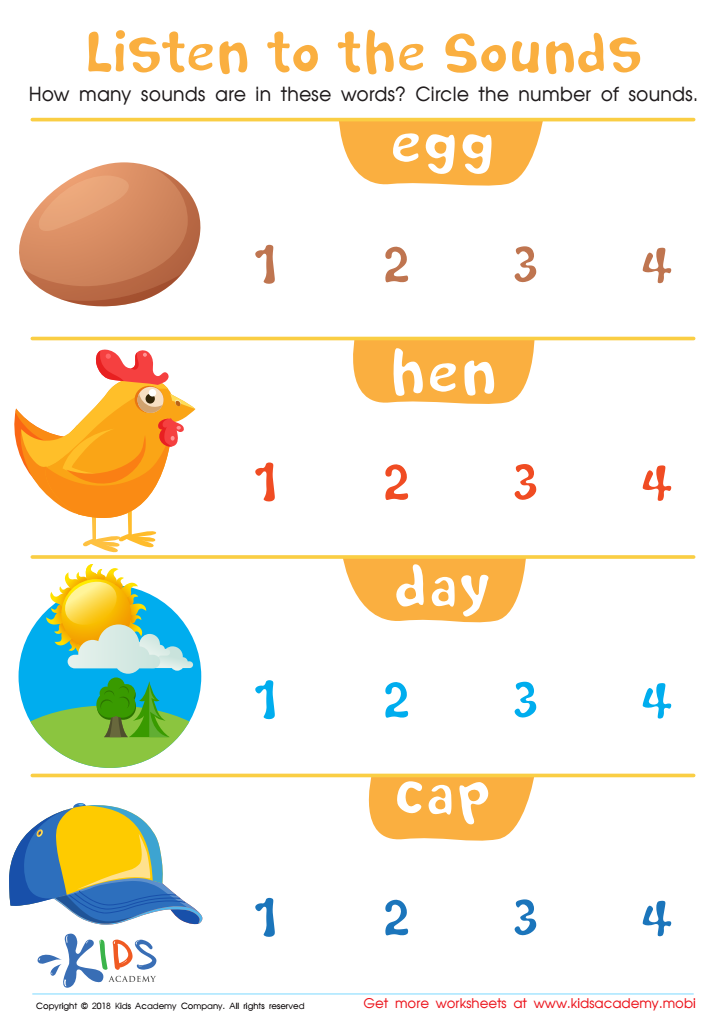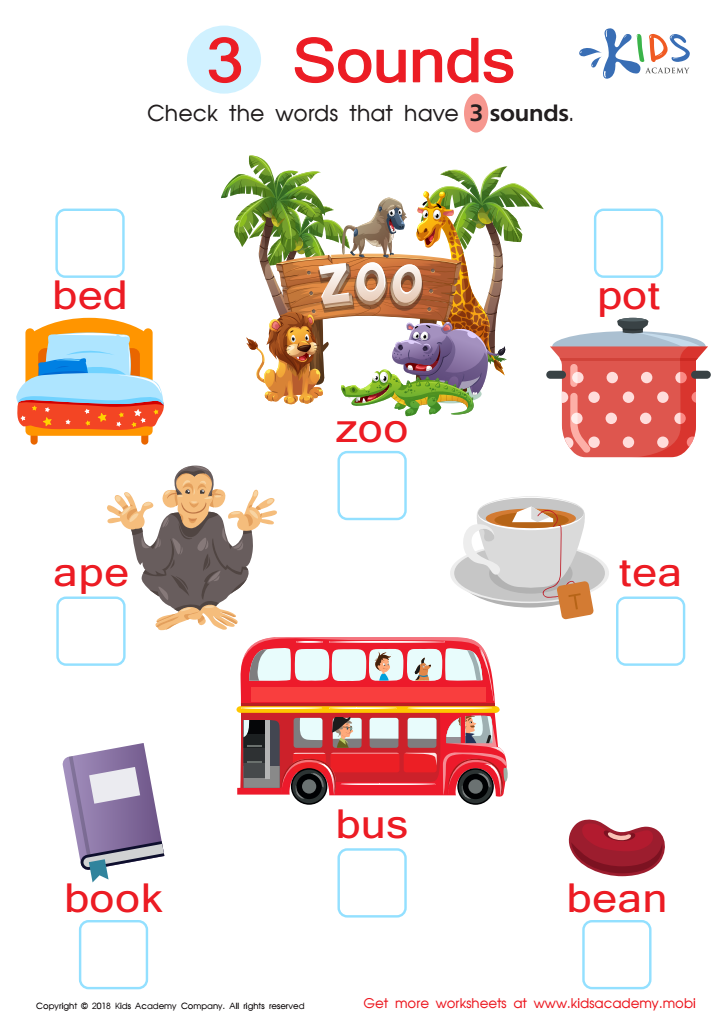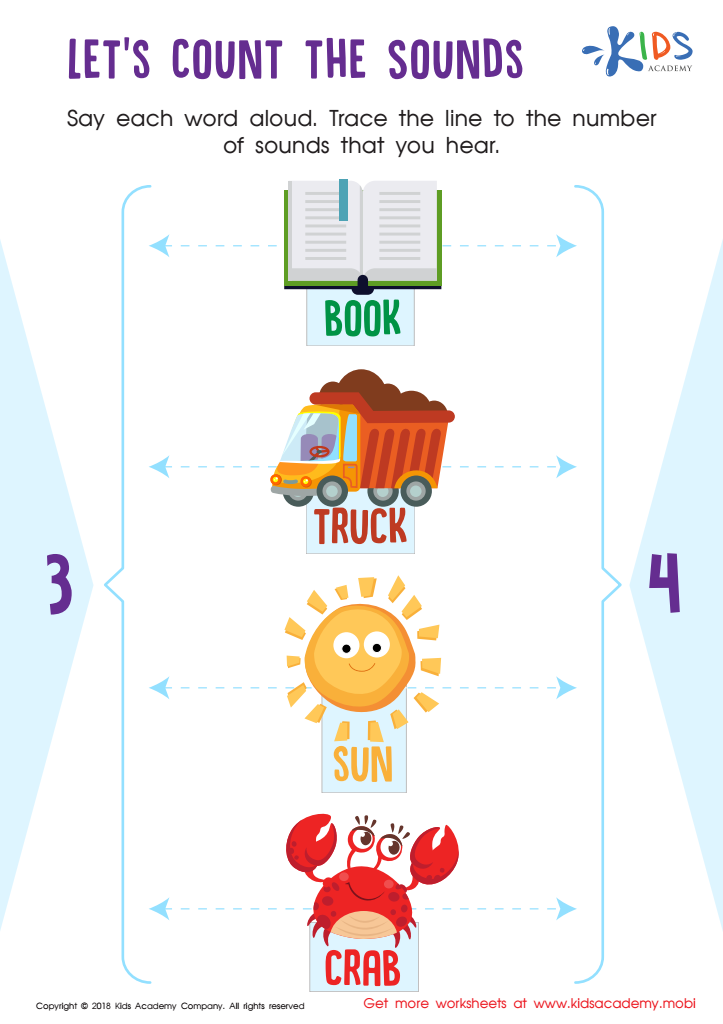Sound Association Normal Letter Sounds Worksheets for 6-Year-Olds
3 filtered results
-
From - To
Introduce young learners to the world of phonics with our "Sound Association Normal Letter Sounds Worksheets for 6-Year-Olds." Designed to boost early reading skills, these fun and engaging worksheets guide children in associating letters with their corresponding sounds. Each activity is crafted to enhance phonemic awareness, helping kids identify beginning, middle, and ending letter sounds in words. By practicing with these worksheets, children will develop a strong foundation for reading fluency and spelling. Perfect for classroom use or extra practice at home, our worksheets make learning letter sounds an enjoyable and rewarding experience.


Listen to the Sounds Worksheet


3 Sounds Worksheet


Let's Count the Sounds Worksheet
Understanding sound association and normal letter sounds is crucial for 6-year-olds as it lays the foundation for literacy skills essential for their academic success and overall language development. When parents and teachers emphasize these skills, children develop phonemic awareness, which is the ability to hear, identify, and manipulate individual sounds (phonemes) in spoken words. This skill is fundamental for reading and spelling proficiency.
For young learners, associating letters with their corresponding sounds helps them decode words when reading. This means they can break down words into simpler sounds, which is a critical step in recognizing and understanding new words. Additionally, this knowledge aids in accurate and confident spelling, as children learn the typical sound-letter patterns in their language.
Moreover, strong early reading skills are often linked to a positive academic trajectory. Children who are proficient readers early on tend to perform better across other subjects, as literacy is a gateway to accessing written information in science, history, and other areas.
Supporting sound association and letter sounds also helps in the development of critical thinking and problem-solving skills. As children learn to blend sounds to form words, they also improve their ability to analyze and interpret meaning, aiding their comprehension abilities.
Therefore, focusing on these skills is not just about reading and writing; it’s about equipping children with the tools they need for holistic cognitive development and lifelong learning.

 Assign to My Students
Assign to My Students


















